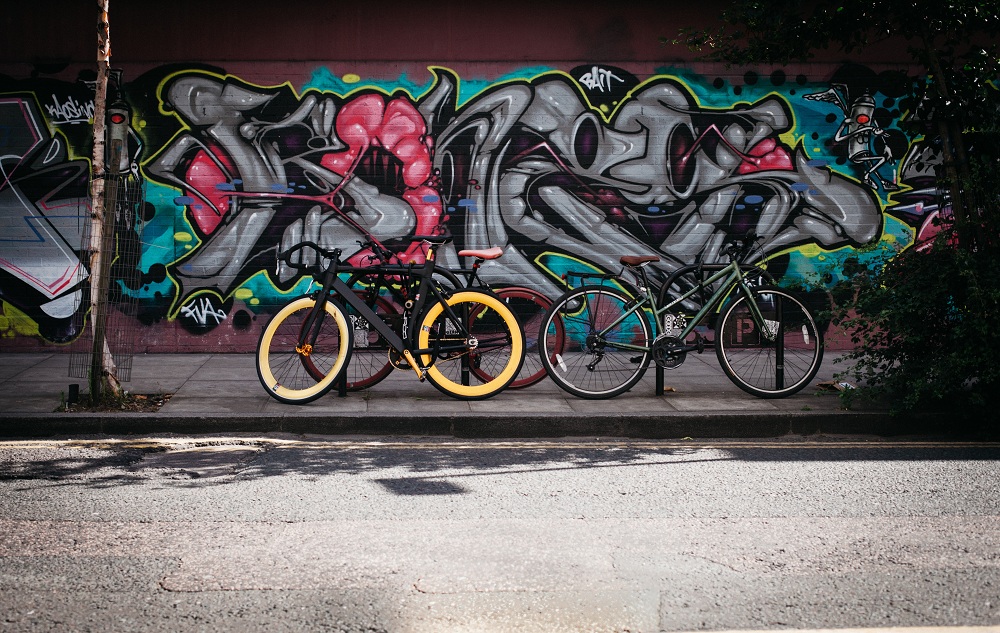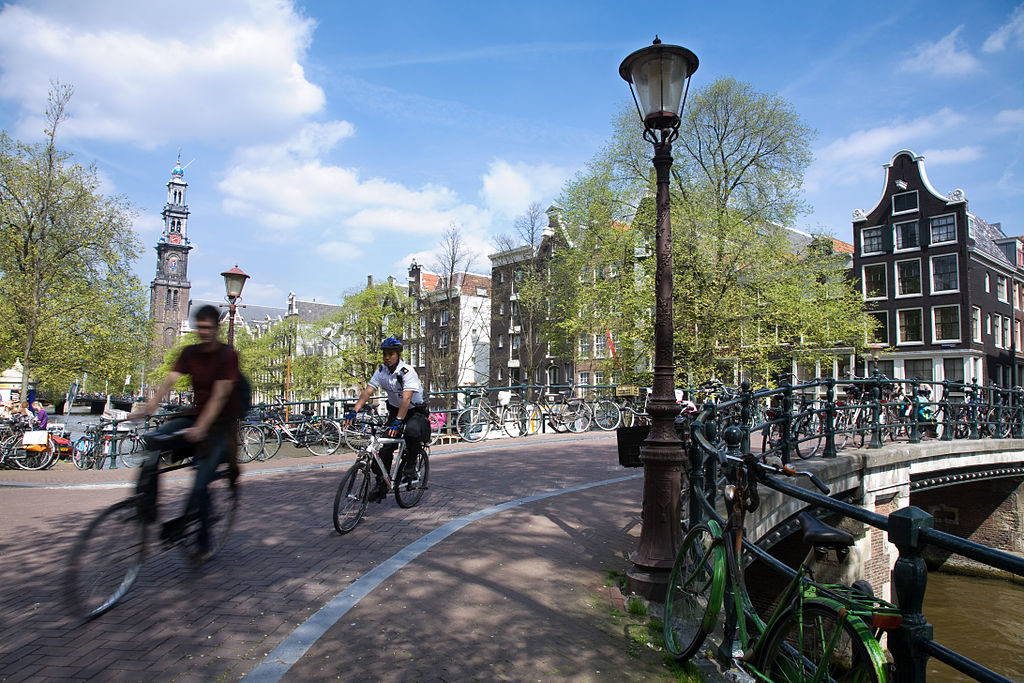On average, a commuter in Indian cities spend 1.5 hours more on their daily commutes than their sister Asian cities during peak traffic times, according to The Boston Consulting Group (BCG) .
Most of the cities are built keeping in mind cars and vehicular movement. This was very unlike in 1970 and 1980 where focus was more towards public transport and mass movement. Case in point is Pune city, where during 1970-1990 the use of cycle as means of commute was flourishing, but due to government policies and private players having a say in city planning, the focus was shifted from eco friendly cycle rides to pollution causing yet money minting passenger vehicles.

Ofo Bike Sharing – Appocalypse
Photo by Clem Onojeghuo from Pexels
Amsterdam
As is common in Dutch cities, Amsterdam has a wide net of traffic-calmed streets and world-class facilities for cyclists. All around are bike paths and bike racks, and several guarded bicycle parking stations (Fietsenstalling) which can be used for a nominal fee. In 2006, there were about 1,000,000 bicycles in Amsterdam.
Bicycles are used by all socio-economic groups because of their convenience, Amsterdam’s small size, the 400 km of bike paths, the flat terrain, and the arguable inconvenience of driving an automobile: driving a car is discouraged, parking fees are expensive, and many streets are closed to cars or are one-way for motor vehicle traffic (but not for cyclists). Amsterdam’s bike paths (Fietspad) are red in colour, in order to differentiate them from both the road ways and footpaths.
Amsterdammers ride a wide variety of bicycles including the traditional Omafiets – the ubiquitous Dutch roadster with a step-through frame – to anything from modern city bikes, road bikes, mountain bikes, and even recumbent bikes.

Amsterdam_Bicycle_City
By © Jorge Royan
Many tourists discover Amsterdam by bike, as it is the typical Dutch way to get around the city. Bicycle tour groups offers a guided bike tour through the city. Bicycle traffic, in fact traffic in general, is relatively safe: in 2007, Amsterdam had 18 traffic deaths, of all types, in total.
Bike traffic has a 32% modal share, which is the largest across the city transportation solutions.
source wikipedia
This is exactly where and why the likes of ofo, Mobike, Limebike, Pedl, Jump have seen an opportunity and jumped in. Ofo the world’s biggest tech-enabled cycle sharing start-up, with $3 billion valuation is leading from the front. It was started in China by a bunch of university grads to make commute easier within their campus. Soon, the idea flourished and it is now present in 250 countries. They help the cities in reducing congestion and reducing pollution.
So, this is how it works. There are cycle stations at various points within a city. A user can pick up a cycle from one of the stations and drop it at any of the other. The user downloads the app and registers with them. Opens the app and searches for a cycle station near him. The app tells him/her whether there are any cycles available. If yes then the user enters the cycle in the app and unlocks the cycle. After the ride the user locks with cycle in a similar fashion. The user generally gets charged very minimal amount like for Pedl it is Rs1 per 30 mins ride and of is free initially.
It is a great way to commute short distance from Stations to colleges and offices. This will reduce dependency on Buses, rickshaws and save a lot of time and plus it’s a healthier way of travel.
Indian Market
Let’s take Ofo who claims to have 32 million rides per day globally has only 1 million rides in 10 weeks of operations in India. Indian market is at what China was in early 2000s with Increasing traffic, congestion, bad infrastructure etc. Also, Indian weather plays an important role in this business. A city with pleasant year round weather has a better chance of accepting cycling as way of commute over a city with rains and humidity making it necessary to go for an air conditioned commute. Also, most importantly it’s the civic administration and its thought process which will decide the future of bike sharing in India.
City like Pune, Coimbatore are high on their radar as the cities have high population and residential and industrial belts as well as favorable climate.
With focus on smart cities, the government of India has opened the flood gates for such innovative ideas to flourish in these cities. Pune, with its Pune Cycle Plan hopes to develop a sustainable urban transportation system and smart city solution for traffic congestion.
But, these tech enabled funds heavy start-ups alone cannot win the war. The civic bodies need to inculcate a sense of pride in every development work for eco friendly and mass transit commuter modes like Amsterdam.





